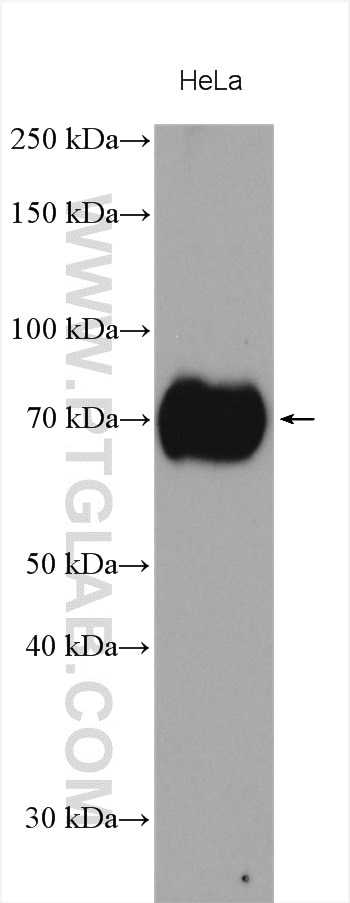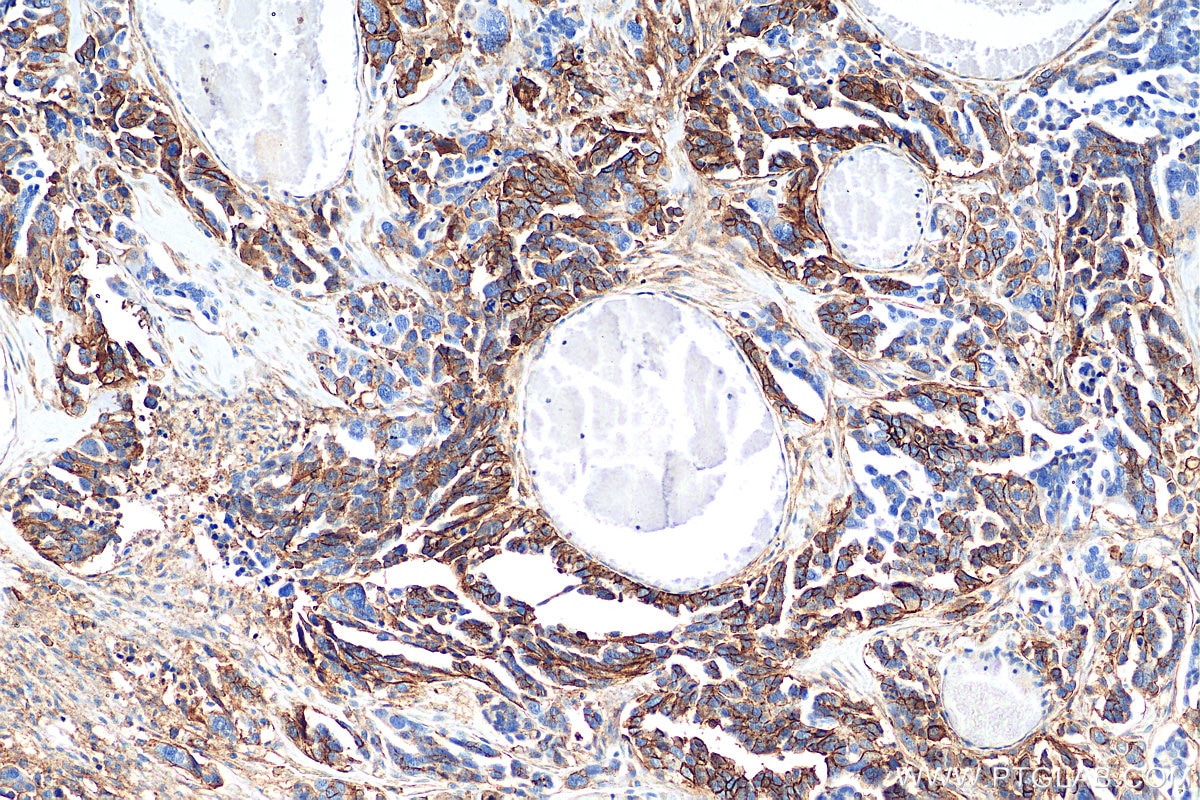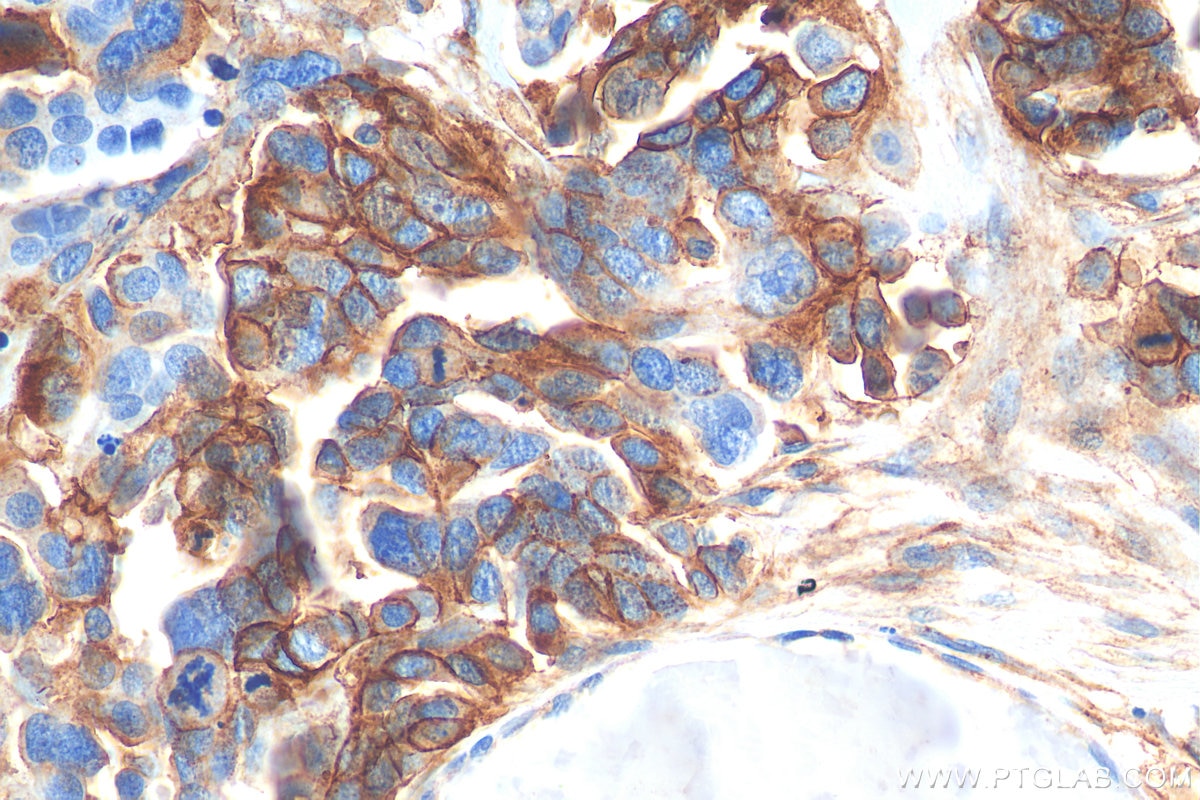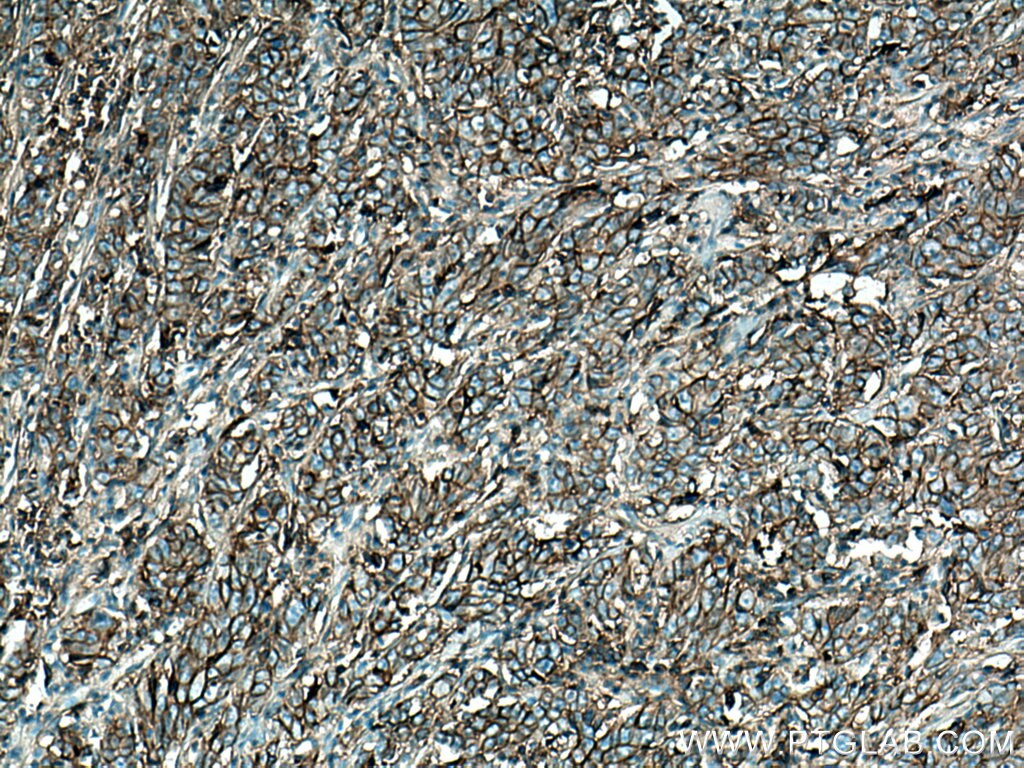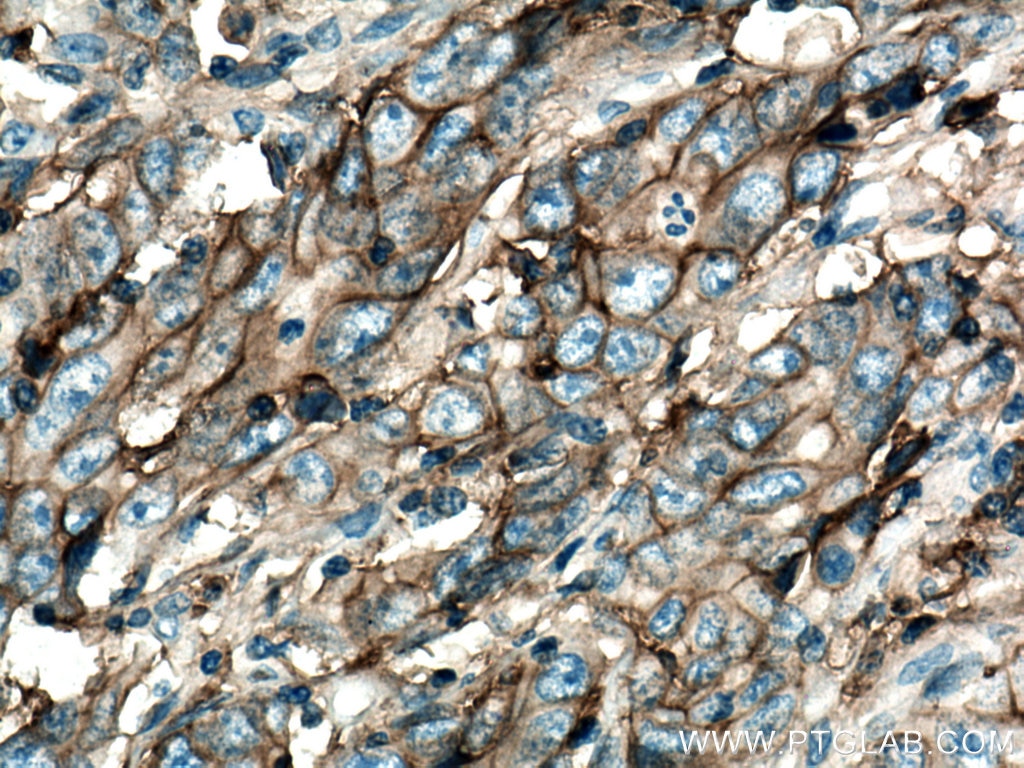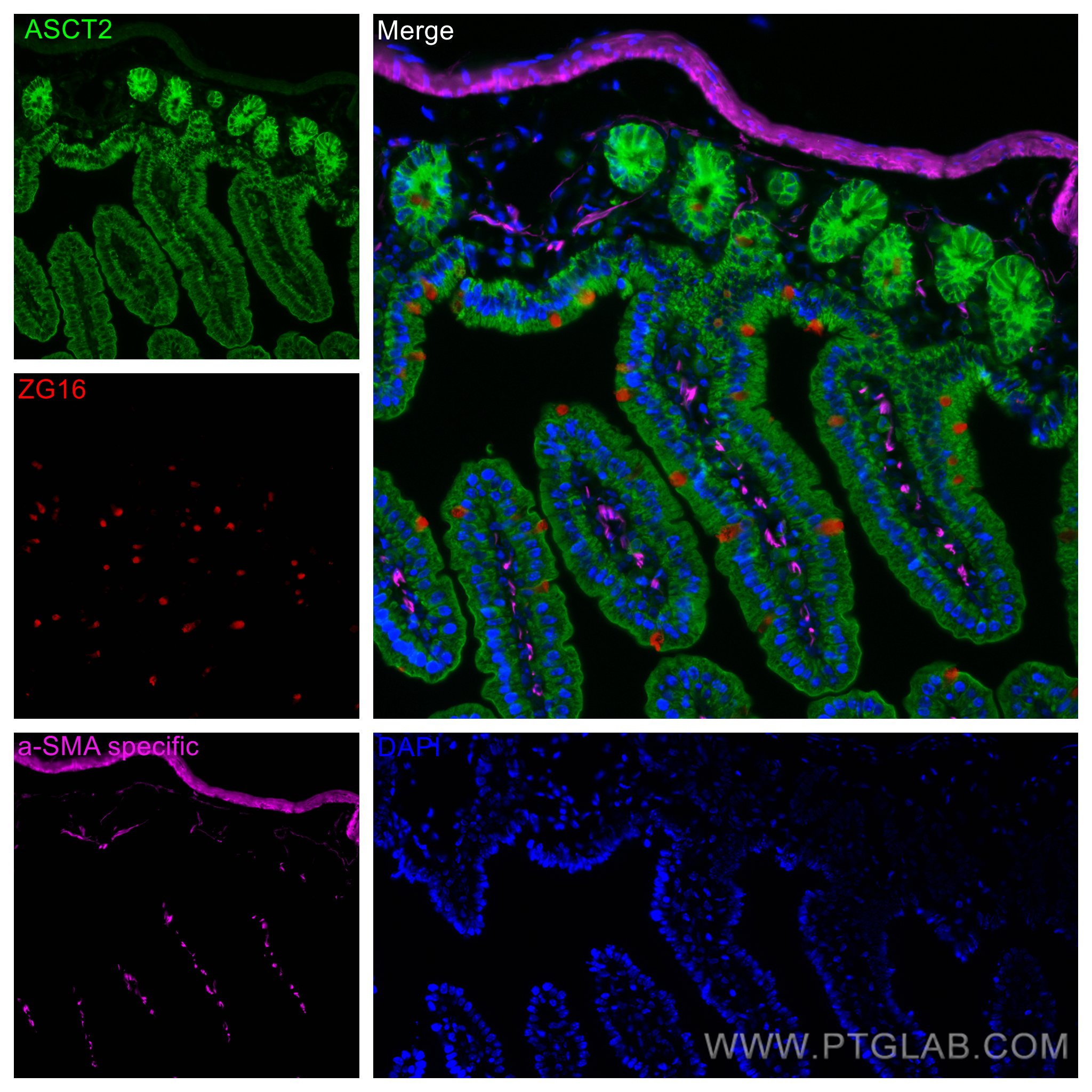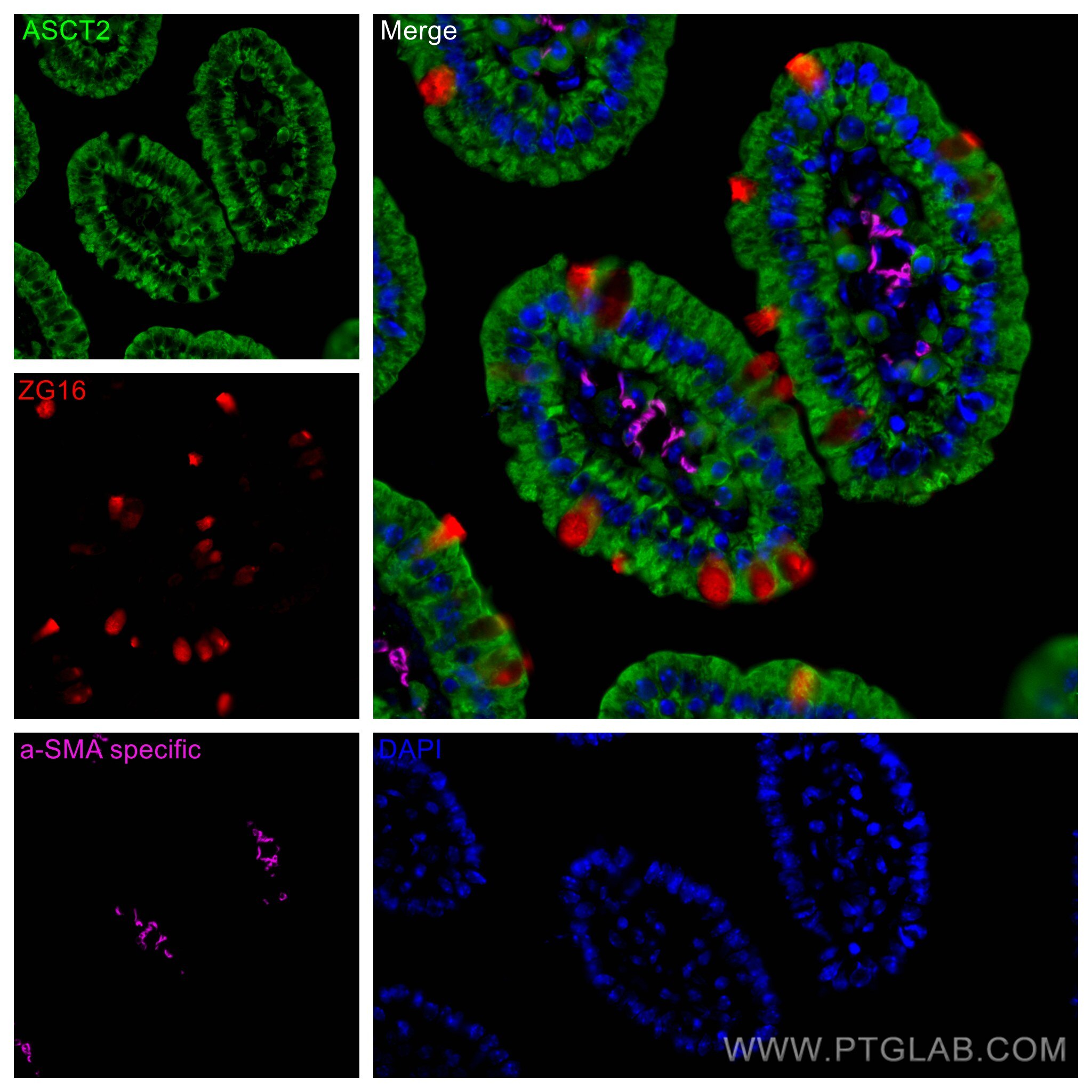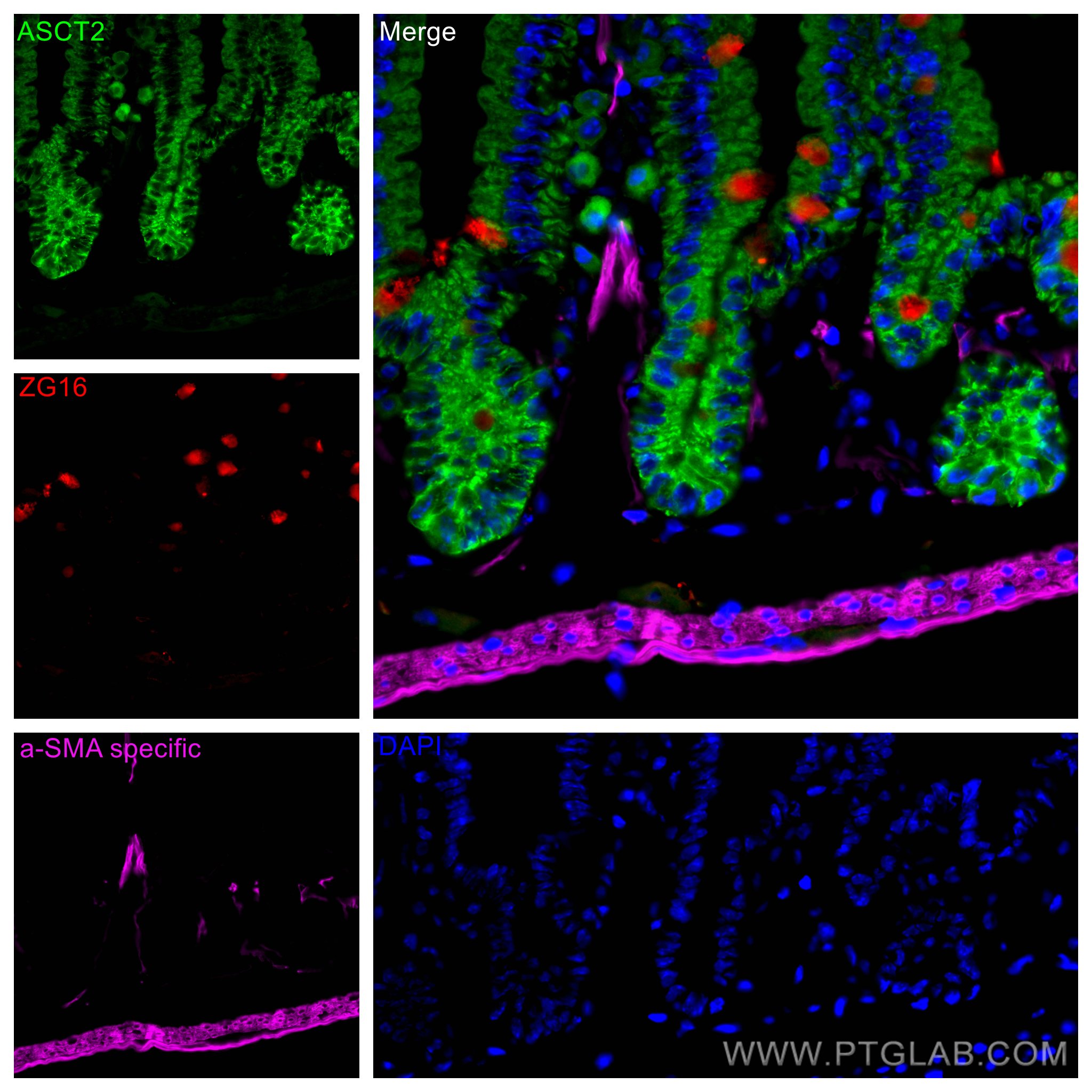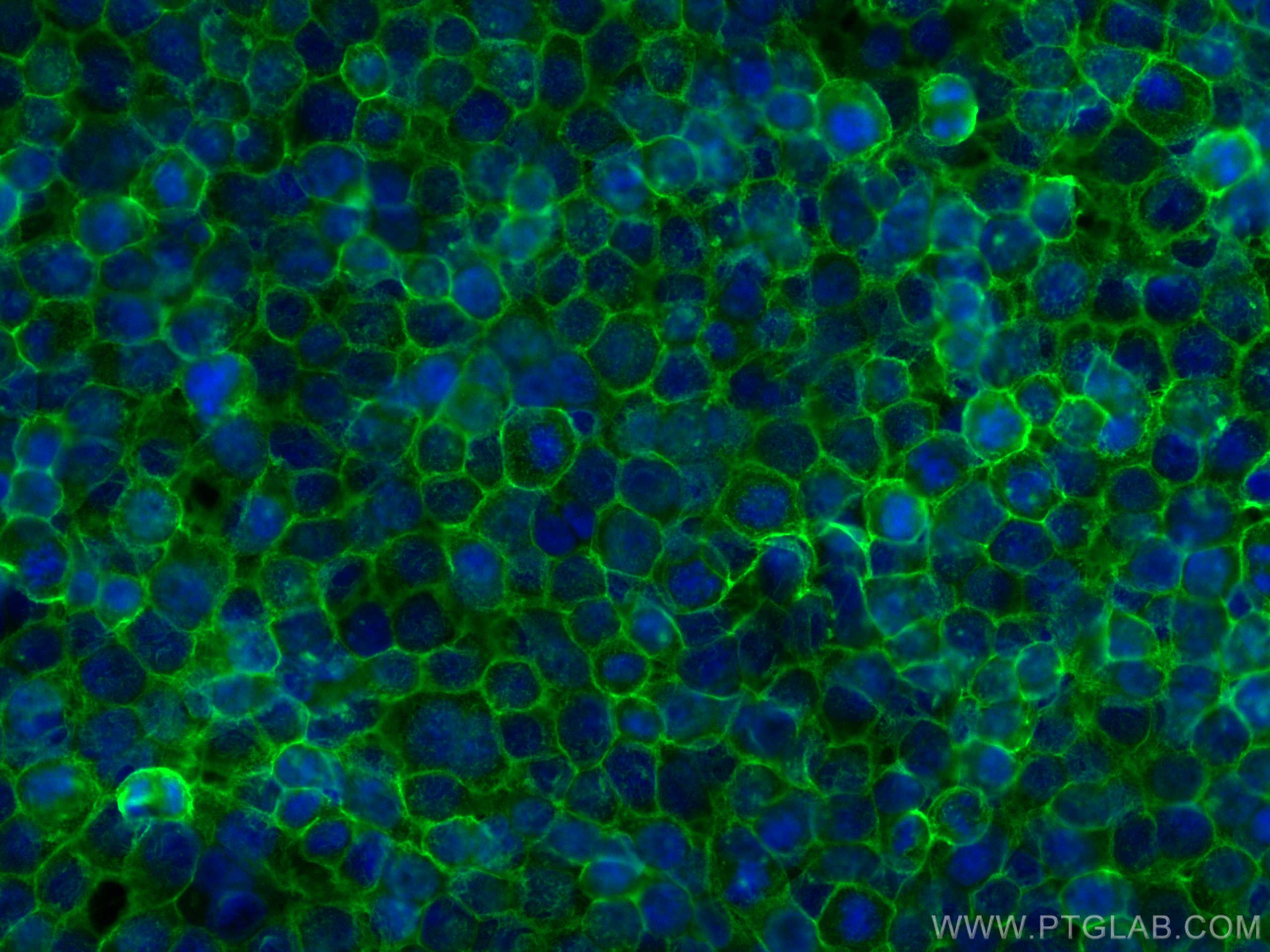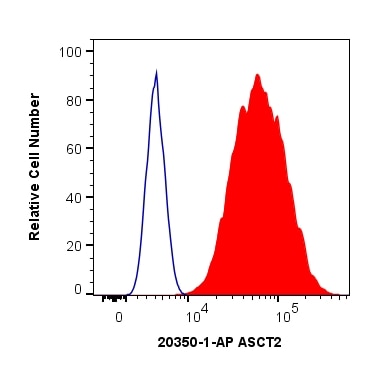Tested Applications
| Positive WB detected in | HeLa cells |
| Positive IHC detected in | human colon cancer tissue, human stomach cancer tissue Note: suggested antigen retrieval with TE buffer pH 9.0; (*) Alternatively, antigen retrieval may be performed with citrate buffer pH 6.0 |
| Positive IF-P detected in | mouse small intestine tissue |
| Positive IF-Fro detected in | mouse small intestine tissue |
| Positive IF/ICC detected in | HEK-293 cells |
| Positive FC (Intra) detected in | HeLa cells |
Recommended dilution
| Application | Dilution |
|---|---|
| Western Blot (WB) | WB : 1:2000-1:16000 |
| Immunohistochemistry (IHC) | IHC : 1:400-1:1600 |
| Immunofluorescence (IF)-P | IF-P : 1:50-1:500 |
| Immunofluorescence (IF)-FRO | IF-FRO : 1:50-1:500 |
| Immunofluorescence (IF)/ICC | IF/ICC : 1:200-1:800 |
| Flow Cytometry (FC) (INTRA) | FC (INTRA) : 0.40 ug per 10^6 cells in a 100 µl suspension |
| It is recommended that this reagent should be titrated in each testing system to obtain optimal results. | |
| Sample-dependent, Check data in validation data gallery. | |
Published Applications
| KD/KO | See 2 publications below |
| WB | See 28 publications below |
| IHC | See 12 publications below |
| IF | See 7 publications below |
Product Information
20350-1-AP targets SLC1A5/ASCT2 in WB, IHC, IF/ICC, IF-P, IF-Fro, FC (Intra), ELISA applications and shows reactivity with human, mouse samples.
| Tested Reactivity | human, mouse |
| Cited Reactivity | human, mouse, pig, canine, goat |
| Host / Isotype | Rabbit / IgG |
| Class | Polyclonal |
| Type | Antibody |
| Immunogen |
CatNo: Ag14182 Product name: Recombinant human RDRC protein Source: e coli.-derived, PGEX-4T Tag: GST Domain: 436-541 aa of BC000062 Sequence: VLTLAIILEAVNLPVDHISLILAVDWLVDRSCTVLNVEGDALGAGLLQNYVDRTESRSTEPELIQVKSELPLDPLPLPTEEGNPLLKHYRGPAGDATVASEKESVM Predict reactive species |
| Full Name | solute carrier family 1 (neutral amino acid transporter), member 5 |
| Calculated Molecular Weight | 541 aa, 57 kDa |
| Observed Molecular Weight | 55-70 kDa |
| GenBank Accession Number | BC000062 |
| Gene Symbol | SLC1A5/ASCT2 |
| Gene ID (NCBI) | 6510 |
| RRID | AB_2878679 |
| Conjugate | Unconjugated |
| Form | Liquid |
| Purification Method | Antigen affinity purification |
| UNIPROT ID | Q15758 |
| Storage Buffer | PBS with 0.02% sodium azide and 50% glycerol, pH 7.3. |
| Storage Conditions | Store at -20°C. Stable for one year after shipment. Aliquoting is unnecessary for -20oC storage. 20ul sizes contain 0.1% BSA. |
Background Information
SLC1A5 (Solute Carrier Family 1, member 5), also named as ASCT2, a major glutamine transporter belonging to the SLC1 family and localized in the plasma membrane of several body districts. Consistent with the functions exerted by glutamine, SLC1A5 is involved in uptake of essential amino acids, activation of mTORC1 and glutamine-dependent tumor cell survival and growth. SLC1A5 is highly expressed in various malignancies and plays a critical role in the transformation, growth and survival of cancer cells (PMID: 30234109). High SLC1A5 expression is associated with poor prognosis in clear-cell renal cell carcinoma (PMID: 26599282).
Protocols
| Product Specific Protocols | |
|---|---|
| FC protocol for SLC1A5/ASCT2 antibody 20350-1-AP | Download protocol |
| IF protocol for SLC1A5/ASCT2 antibody 20350-1-AP | Download protocol |
| IHC protocol for SLC1A5/ASCT2 antibody 20350-1-AP | Download protocol |
| WB protocol for SLC1A5/ASCT2 antibody 20350-1-AP | Download protocol |
| Standard Protocols | |
|---|---|
| Click here to view our Standard Protocols |
Publications
| Species | Application | Title |
|---|---|---|
ACS Nano Biomimetic Nanomedicine Targeting Orchestrated Metabolism Coupled with Regulatory Factors to Disrupt the Metabolic Plasticity of Breast Cancer | ||
Cell Death Dis NKD1 enhances colon cancer progression by inhibiting the autophagic degradation of MYC | ||
Theranostics PPAR-γ integrates obesity and adipocyte clock through epigenetic regulation of Bmal1. | ||
J Transl Med Elevated SLC1A5 associated with poor prognosis and therapeutic resistance to transarterial chemoembolization in hepatocellular carcinoma | ||
J Transl Med Modulation of SRC by SNTB1 activates the Hippo-YAP pathway during colon adenocarcinoma metastasis |

